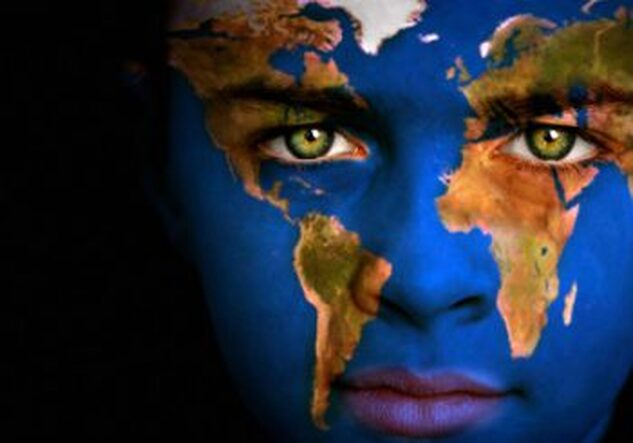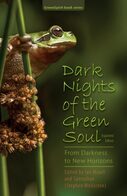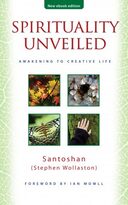Caring for Our Sacred Earth
By Santoshan (Stephen Wollaston)
Guest Writer for Wake Up World
September 2nd, 2020
By Santoshan (Stephen Wollaston)
Guest Writer for Wake Up World
September 2nd, 2020
|
“We have been trying to go into the future as a human community in an exploitative relationship with the natural community, without any sense of being integral with this natural world as a sacred community. From now on, that is just not acceptable, purely and simply because it is a way, not of life, but of death.”
~ Thomas Berry1 As this quotation by Thomas Berry highlights, there is a global cry for us humans to wake up and think about changes that embrace a wider vision of community. Yet the roads leading to and embracing a healthier and wider inclusiveness can be difficult, as it requires stepping out of current modes of thinking and entering new and unfamiliar territory. Various wisdom traditions teach us about stages of unfoldment where it sometimes becomes hard to grasp the perspectives of unattained levels of growth until they are reached (the contemporary psychological system Spiral Dynamics also teaches this). This inability to understand wider perspectives is why some religious believers are unable to embrace those from other traditions and unite with them in the work that is needed for bringing about a lasting peace in the world and living harmoniously with Nature. Religions in the hands of narrow thinkers, as we know only too well, can separate people, whereas a global and Earth-centred spirituality seeks to unite humanity and include all. Inclusiveness not only helps us to truly come together with people, but also helps us to find unity with other species and the Earth. There is an unquestionable need to embrace what it is to be a member of a wider global community. This is not just about individual beliefs and what things we can individually do. It is also about addressing greater problems of power and materialism. Before Greta Thunberg, a Swedish child named Tove asked the following question: "When the last leaf falls, when the last drop of water dries out, when the ozone layer is already destroyed, will it be too late to understand that money is not going to save us?"2 Transforming Our Relationship with Earth We may believe that social status, the latest gadgets or new items of clothing that make corporate businesses richer will bring us lasting happiness. But the only way to become responsibly human and caring citizens of the world is to simplify our lives, to understand deeper issues of why humans have become addicted to harmful patterns of behaviour; to realise the richness, awe, wonder and variety of the natural world, our interconnected relationship with it, and how we can preserve it. When the tsunami of 2004 happened, a small village community in Sri Lanka was said to have had few fatalities, even though it was one of the worst hit, because the people living there had not forgotten how to live in balance with the natural world and take notice of Nature’s signs. They did not know exactly what was going to happen, but they knew enough to move quickly away from the coast and climb high ground. Tectonic plate theorists tell us that tsunamis happen because of continents drifting and pressing up against each other. If the tectonic plates did not do this, our Earth would not be able to maintain a suitable environment and atmosphere for the variety of life of our planet. As far as scientists can tell, there are no other planets that have this activity. It is what makes Earth so unique, diverse and habitable for so many life forms. If we are to continue living on and with Earth, of which we are a wondrous part, we need to not only care for her, but also learn how to read her signs, understand her ways and adapt creatively to living in harmony with her. Earth does not have inexhaustible supplies. “The maternal sea is polluted, the heavens are rent, the forests are being destroyed and the deserts are increasing”, Patriach Ignatius IV of Antioch informs us. Yet there is enough for everyone if we are wise enough and care enough about other people and life we share our incredible planet with. Up to now, the West has invariably either tried to control or plunder the natural resources of our planet, which has often ended in disaster. If we truly love Nature, we need to consider how we can help her. We owe our birth to the history of Mother Earth, but now we are threatening the multiplicity of life she has sought to celebrate. It is as though there is a psychological split in our human psyche that, on the one hand, realises life would be less rich and joyous if there was not the vast array of wildlife around us and, on the other hand, continues to burn an abundance of fossil fuels, use pesticides, bury harmful waste in the ground and propagate methods of farming that destroy Nature’s natural order, balance and biodiversity. In London, instead of finding creative solutions, many ancient trees are being pulled up and killed because their roots are damaging buildings or in the way of new construction sites. In contrast to this, an article by Derek Chamberlain and George Polley on green spirituality in Japan described how the Japanese people replanted 400-year-old cherry trees that were being threatened by a dam construction project.3 Ellen Bernstein points out that “just as we have the power to spoil the creation, we also have the power to make it whole. We have the power to mend the earth and to mend ourselves, to sew the pieces back together again”.4 Global Sisterhood and Brotherhood We often don’t act on ecological matters or worry about the sustainability of the natural world, as we often don’t immediately see the results of the harm that is being done, or because it is taking place in a distant part of the planet and we feel it has little to do with us. Sometimes it is because the problems seem too big and unsolvable, so we bury our heads in the sand rather than trouble ourselves thinking about inevitable consequences and what is crying out to be done. The creativity that is called for requires a responsiveness – which is always needed to help creativity flourish – that comes from deep within people’s hearts, just as when we watch the news and see disaster victims and feel impelled to help. We must realise that people and other species are already suffering because of consumerism and irresponsible farming and manufacturing methods. It is only because the rest of the world has not lived as extravagantly as we have in the West that humanity has not yet reached a point of no return. A global green community working together in the search for finding a deeper and healthier spirituality is one that listens to and acts upon universal wisdom that crosses all boundaries and embraces all, and encourages reciprocal actions for everyone’s benefit, including more than human species. It requires engaging with the world, putting globally friendly practices into action, where everyone can be involved and feel valued, and helps people to find lasting and profound meaning and purpose to their existence. Instead of becoming complacent or feeling disempowered and believing that any form of change in humankind’s nature and current direction is impossible, we need to be passionate about what can be done and affirm there is nothing that cannot be achieved when it is acted upon with love and in harmony with the creativity of the natural world. References:
Recommended Articles by Santoshan:
|
About the Author:
|
This article is an extract from the book Spirituality Unveiled, which was adapted for a chapter in the newly expanded edition of Dark Nights of the Green Soul (GreenSpirit Book Series, 2020).
Information about the low-cost Green Spirit Book Series: New mid-price eBook edition of Spirituality Unveiled (2020): https://www.amazon.co.uk/Spirituality-Unveiled-Awakening-Creative-Life-ebook/dp/B08BN3QLP5/ Earth Books paperback of Spirituality Unveiled (2011): https://www.amazon.co.uk/Spirituality-Unveiled-Awakening-Wollaston-published/dp/B01BOEEYO8/ |

Santoshan (Stephen Wollaston) is an ordained interfaith minister and was given the name Santoshan (contentment) by an English swami in the mid-90s. In his early 20s, he was the principal bass guitarist of one of London’s first punk rock bands, The Wasps. He has studied transpersonal psychology, typographic design, and holds a degree in religious studies and a postgraduate certificate in religious education from King’s College London. He has served as a trustee of the UK charity GreenSpirit (www.greenspirit.org.uk) for many years, is a member of GreenSpirit’s editorial and publications committee, and the designer of GreenSpirit magazine. He was also a long-time close friend of the late UK medium and former Benedictine monk Glyn Edwards, co-authored his first two books with him and edited anthologies of his wisdom.
In all, Stephen/Santoshan has authored, co-authored and edited over twelve books, including ‘The House of Wisdom: Yoga Spirituality of the East and West’; ‘Spirituality Unveiled: Awakening to Creative Life’; ‘Rivers of Green Wisdom: Exploring Christian and Yogic Earth Centred Spirituality’; ‘Realms of Wondrous Gifts: Psychic, Mediumistic and Miraculous Powers in the Great Mystical and Wisdom Traditions’; and the multi-authored ‘Pathways of Green Wisdom: Discovering Earth Centred Teachings in Spiritual and Religious Traditions’ (GreenSpirit). See his Facebook page for more details: www.facebook.com/stevewollastonsantoshan/
In all, Stephen/Santoshan has authored, co-authored and edited over twelve books, including ‘The House of Wisdom: Yoga Spirituality of the East and West’; ‘Spirituality Unveiled: Awakening to Creative Life’; ‘Rivers of Green Wisdom: Exploring Christian and Yogic Earth Centred Spirituality’; ‘Realms of Wondrous Gifts: Psychic, Mediumistic and Miraculous Powers in the Great Mystical and Wisdom Traditions’; and the multi-authored ‘Pathways of Green Wisdom: Discovering Earth Centred Teachings in Spiritual and Religious Traditions’ (GreenSpirit). See his Facebook page for more details: www.facebook.com/stevewollastonsantoshan/


